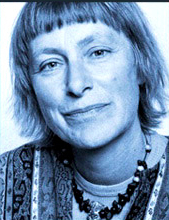Why had I never noticed the number of sick people who appear in the Gospels? Who or what made them sick?
It was not theologians who invented the cross, rather, the Roman Empire thought up this method of deterring people who heard the cry for liberation by slowly and publicly torturing to death those who cried out. Anyone who has ever read reports of torture, for example, from Guatemala, anyone who has seen a film like Two Worlds about South Africa knows that it is not a matter of something exotic but of the normality of imperial suppression which now presents a slow method of torture as “low intensity conflict” for whole regions.
Our pattern was to provide political information integrated with biblical texts, a brief address, calls for action, and finally, discussion with the gathered congregation. The basic elements of all subsequent Evensongs were information, meditations, and action.
I use the gospel, or other religious traditions, to say something that is vital to me.
Writing means for me that I continue the writing of the Bible, going on with the writing of the Book.
When I have spent time with someone and have been touched by particular points in our conversation, I often feel the need to write it down and to reconstruct or clarify it for myself.
When you spread your life around rather than hoarding it, then the great light becomes visible within you. To be sure, you enter into loneliness, often you lose friends, a standard of living, a job, or a secure career, but at the same time you are changed. And the cross, this sign of isolation, of shame, of abandonment becomes, in this process, the tree of life, which you no longer like to be without at all.
Those who do not fight back do not believe in love or hope. In my opinion, a group of Christians who call themselves a church are a church only if they fight back. To live in resistance is what is meant by hope against hope.
The correct theological question is thus not whether someone lives with or without a god, but rather which god is worshipped and adored in a particular society.
Our relationship to the world is expressed in having, consuming, and dominating.
I really believed –and still do—that Christ cannot be understood and loved without seeing the ongoing crucifixion done to his sisters and brothers.
To pray means to hold before ourselves again and again the black children of South Africa who today are in prison, humiliated, and tortured.
There are among us people who allow themselves the truth. They step in for the victims of violence; they create unrest while the authorities are trying to keep everything nicely under control.
Quakers speak of three qualities open to everyone: boundless happiness, absolute fearlessness and constant difficulty.
–Dorothee Sölle (1929-2003) was a German feminist theologian, poet and activist. These passages come from her Essential Writings.

1 Comment